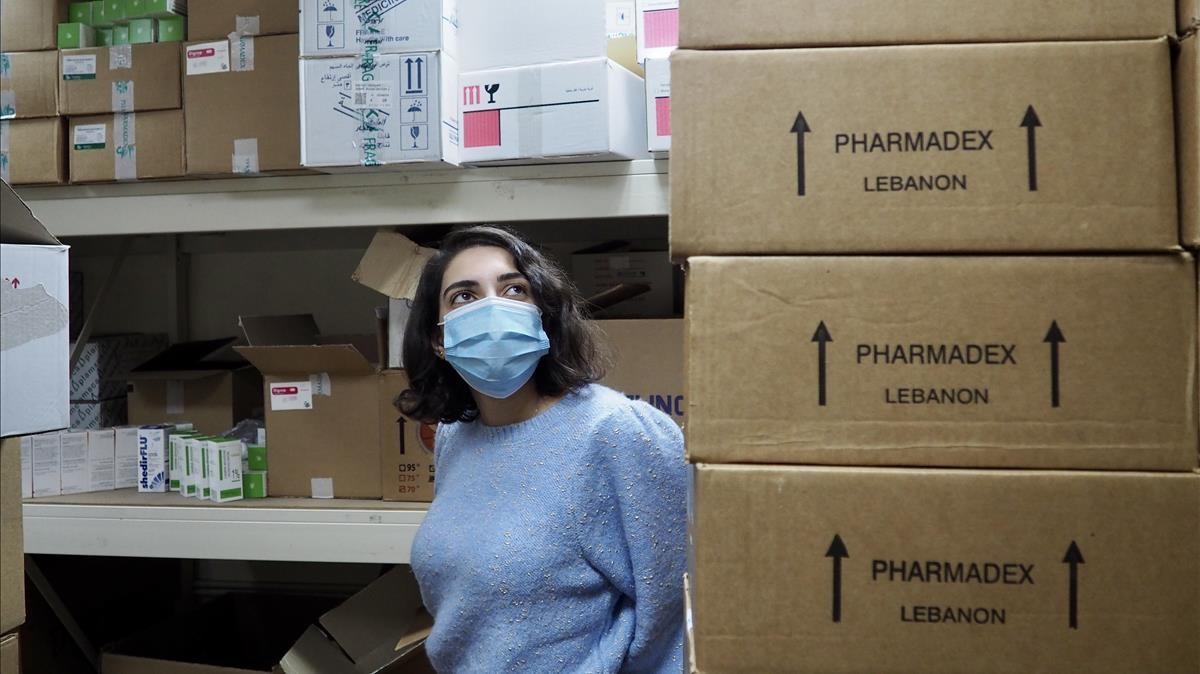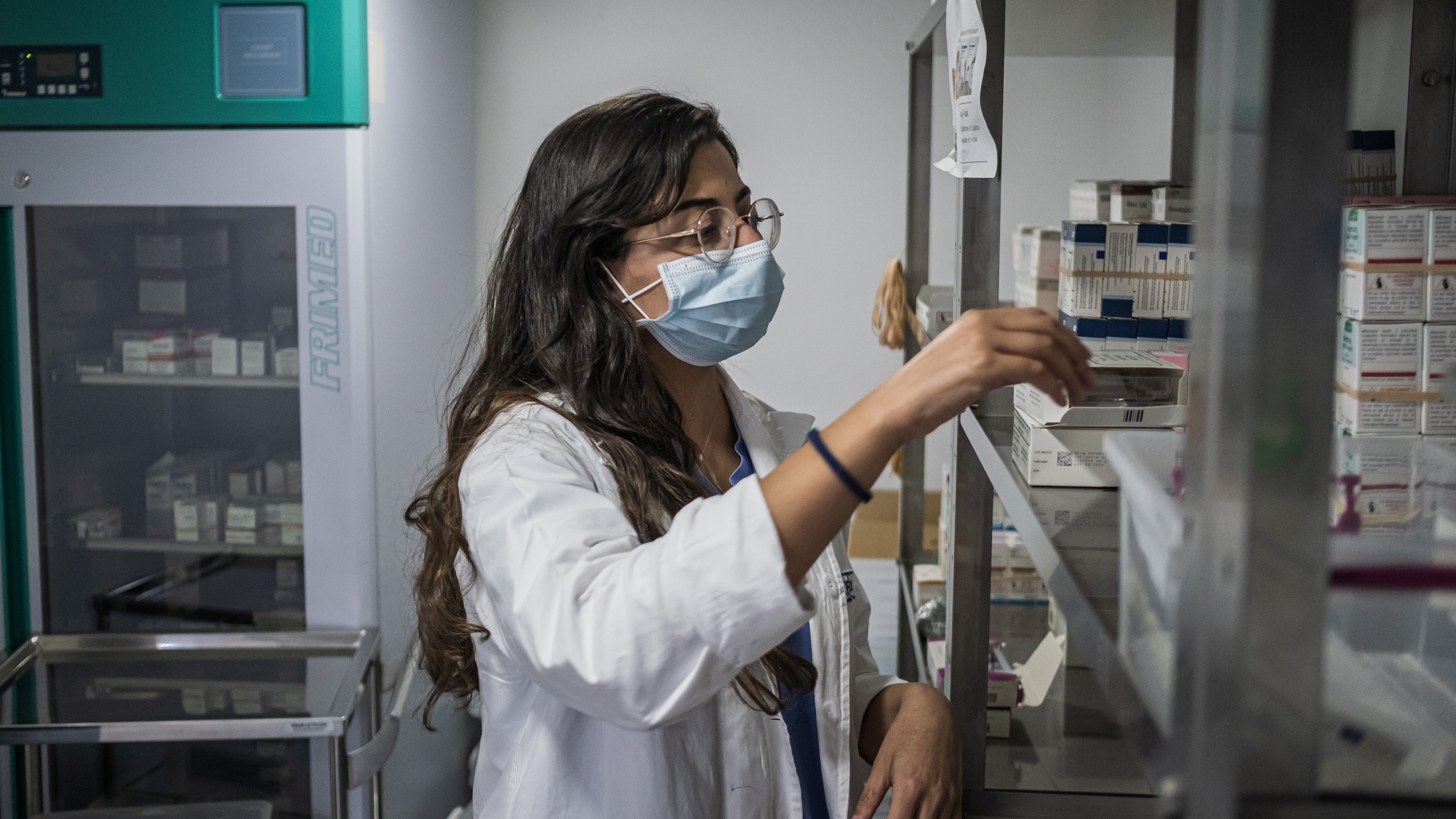Drug Shortages, Soaring Prices Are Killing Lebanon’s People
As country’s Union of Drug Manufacturers announces a new hike in the cost of medication, the sick are turning to humanitarian aid or private initiatives to fund their treatments
[Beirut] Many Lebanese are spending their days driving from pharmacy to pharmacy, in search of their medication. What they end up finding are empty shelves or prohibitive prices and most of the time they return home empty-handed.
According to the World Bank, Lebanon is suffering one of the world’s most severe economic crises since the 1850s, and the drug shortage has had a critical impact on its society’s health. Due to the lack of medication and treatments, some patients with curable illnesses have already lost their lives.
The Union of Drug Manufacturers in Lebanon announced that the price of pharmaceuticals in the country will increase further. According to the union, these measures aim to “prevent shortages” in the face of the “financial deterioration and dwindling [central bank] reserves.”
According to UNICEF, more than nine out of 9 families in Lebanon have experienced an increase in the price of medicines and more than half cannot obtain the medicines they need.
“Right now, we are in a critical situation regarding drugs,” says Karim Gebara, the president of the Lebanese Pharmaceutical Importers Association.
“Eighty percent of medicines are imported and 20% are locally manufactured, although the raw material is imported, so we are talking about an industry that is 90% based on imports,” Gebara tells The Media Line.
The depreciation of the Lebanese pound (LBP) by 95% has made it incredibly difficult for importers to get meds produced abroad into the country. And now this decision by the Union of Drug Manufacturers is impacting the local production.
Drugs that used to cost between 199 LBP (some $150 according to the official exchange rate, but less than $5 on the black market) and 399 LBP will experience an increase of between 6 and 180 LBP, depending on the medication. And in a country where the minimum monthly wage of 675,000 LBP is worth less than $16 today, this decision increases the burden on the general population.
AS result, Lebanese people have had to become creative and resourceful in order to care for themselves. Many organizations are stepping in to provide medication and treatments to those who can’t afford the prices of the private Lebanese health care system. Malak Khiami is a pharmacist at Amel Association, a nongovernmental organization that distributes drugs to those who need them in their 25 centers across Lebanon.

Amel Association pharmacist Malak Khiami. (Andrea López-Tomàs/The Media Line)
“Before, we used to almost exclusively assist the Syrian refugee community in Lebanon,” Khiami tells The Media Line. “Now the number of Lebanese who come to our centers for medicines has doubled.”
Give the gift of hope
We practice what we preach:
accurate, fearless journalism. But we can't do it alone.
- On the ground in Gaza, Syria, Israel, Egypt, Pakistan, and more
- Our program trained more than 100 journalists
- Calling out fake news and reporting real facts
- On the ground in Gaza, Syria, Israel, Egypt, Pakistan, and more
- Our program trained more than 100 journalists
- Calling out fake news and reporting real facts
Join us.
Support The Media Line. Save democracy.


She says people are seeking humanitarian aid as a last resort in order to save their own lives.
“Those who have acquaintances or relatives outside of Lebanon ask them to bring drugs from abroad, but those who don’t have them are suffering and resorting to other means,” Khiami says.
Marina El Khawand goes to the airport at least twice a week to pick up suitcases full of medications. The 20-year-old student from Beirut is the founder of Medonations, an initiative that organizes medication drives abroad and finds people who can bring in all the medical donations when they travel to Lebanon.

Medonations founder Marina El Khawand. (Andrea López-Tomàs/The Media Line)
“If the situation continues like this, we are going to lose lives at a rate that will make it impossible for us to continue saving them,” el Khawand told The Media Line.
“Health cannot wait,” she insisted, regarding the emergency that also motivated Hoda Kara to intervene.
Kara is a Lebanese national who lives in Cairo with her Egyptian husband. She used to come to Beirut every month to visit her family and run her event-planning business with her sister. More than two summers ago, she realized that she had to extend her trip.
“When I found out that medicines would soon run out in Lebanon, I decided to stay longer and collaborate with a friend who has an NGO,” Kara told The Media Line.
Since then, every week her husband fills the suitcases with drugs in Cairo and distributes them in Beirut. “We bring those basic medicines, and we deliver them for free; without them, many people would die,” she explained.
Without help from individuals like Kara or collective aid provided by organizations such as Amel or Medonations, many people in Lebanon wouldn’t survive.
In a system rotted by corruption and clientelism, there are some people who see an advantage in a tragic situation. Last summer, more than 130 boxes of medicines for cancer patients were found in a warehouse that belongs to the former head of Lebanon’s pharmacists’ association.
Many blame the shortage of drugs on smuggling operations by companies and individuals aiming to grow their profit margin by selling the supplies in Syria, while the payment delays by the Banque du Liban bear their share of blame.
“A lot of people have stopped taking their treatments,” lamented Kara to The Media Line. “Some will already be dead by the time a decision is made.”
From social media posts to religious charity services and humanitarian aid organizations, even perilous journeys to neighboring Syria, the Lebanese are looking for any option in order to survive.
“Drugs for chronic diseases are not available,” Khiami said.
Those diagnosed with cancer and diabetes are forced to lead a double fight. Lebanon has one of the highest cancer rates in the world, with national cases of the disease increasing from 191 per 100,000 citizens in 2003 to 284 in 2018, according to the International Agency for Research on Cancer, the specialized cancer agency of the World Health Organization.
Cancer patients are the “most difficult cases because medicines and cures are very expensive,” said el Khawand.
“Many people are saved thanks to boxes of medicines from former cancer patients who have already been cured,” the Medonations founder explains, and urges people to “send their opened boxes to Lebanon.”
In the face of their leaders’ indifference, Lebanese people are doing anything they can in order to survive, but the odds are not in their favor. The United Nations estimates that eight out of 10 people in the country now live below the poverty line. The exchange rate is expected to hit 50,000 LBP to the US Dollar in a couple of weeks and possibly 100,000 LBP within months if there is no political breakthrough in the riven country.

